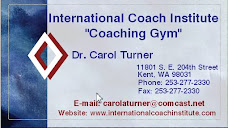The shocking news is that more and more depression is reported by younger people every year. Dr. Martin Seligman tells a story of being in his garden with his 8-year old daughter when his daughter asked, "Daddy, why are you so sad?" Dr. Seligman realized that he had spent his entire life researching the pathology of human beings. Until that moment, he didn't even think about researching the joy and happiness in people. That is when Positive Psychology came to the forefront of Psychology.
The truth is that we have a choice in life each day. A choice to respond negatively or positively. We can choose to be depressed or to find the silver lining in our circumstances with a positive outlook for the future. Human beings have access to hope, gratitude, appreciation, hope, love, and joy. For example, if we practice gratitude and show our appreciation, we can lower our stress levels.
Our heart reacts to positive or negative emotions. A scientific fact is that one angry thought will spike our heart rate to a high, unhealthy level and it will stay elevated for hours. Electrocardiograms show us the impact of anger, or depression, and our happiness. Our collective experiences and emotions will build a culture over time. The stories we tell reflect that culture.
When newly hired or promoted managers enter a new culture, they have a window of opportunity to make a difference in the culture. They can begin telling new stories, they can set new expectations and they can win the hearts and minds of the people they lead.
If they chose not to influence the culture, they will soon become absorbed in the old culture. Cultures are created by the stories people tell over time. It is from their experiences and their emotional reaction to those experiences.
Cultural change takes time, however, when the stories change, the cultures change. The stories change when people are treated with respect and appreciation. Culture is really the unconscious emotions of the collective. We talk about a culture of fear, of avoidance, of productivity, or even resilience. Often these are not talked about openly and yet, they are very present in the culture.
Reaching out in these difficult times feels good. Sharing our hope, our understanding, our time and our resources. Even those who have little right now feel good when helping others. Isn't life really about feeling good about ourselves through helping others? What else is there? Money doesn't bring happiness; love brings happiness.
Managers don't talk about love in the workplace, but why not? Loving, caring, kindness, are all about having a heart connection. Organizations are not built of machinery, they are built of people. People have experiences, emotions, and feelings. Why not create new stories, stories of hope, resilience, and gratitude.
Maybe, just maybe we will continue to be depressed until we choose to change our mindset. We choose to change the stories we tell.
What is your story?
Dr. Carol A. TurnerInternational Coach Institute
http://internationalcoachinstitute.com


